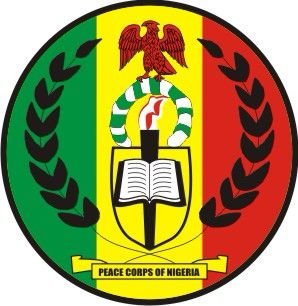- Contributing to nation-building through patriotic and civic education, enhancing and defending the power, prestige and the good name of the Country;
- Providing physical, mental, citizenship and leadership training for the youths towards inculcating in them the values of patriotism, self-reliance, diligence, honesty and team spirit;
- Providing emergency relief services and humanitarian aids to victims of natural disasters, accidents,communal and ethno-religious crisis;
- Advancing the course of volunteerism and serving as a reservoir of manpower for providing social and community services, harnessing the potentials and ingenuity of members and volunteers towards meeting national needs, priorities and aspirations as ad-hoc or support staff;
- Conducting research, surveys and evaluations in order to identify trends, best practices, management and areas of improvement in the field of volunteerism in Nigeria and building the capacity of members and volunteers in the areas of critical thinking, creativity, innovation, entrepreneurship and skill acquisition;
- Enlisting, mobilizing, training and orienting the youths in order to develop them as supporting agents of social order by providing a third-line of public safety, serving as a think-tank and educating residents of communities on safety measures peculiar to their neighbourhoods;
- Securing schools and colleges by upholding a bottom-up surveillance through monitoring, observation, evaluation and to detect, collate and analyse intelligence data on matters that may likely cause breach of peace and security within educational institutions and to transmit same to the appropriate security agency whenever the need arises; and
- Engaging in peace advocacy, mediation and conflict resolution in order to advance the course of peace-building, reconciliation and conflict resolution in all communities in Nigeria.
The end of the Cold War was widely hailed as a turning point in global relations, with expectations that ideological divisions would give way to lasting peace. However, the past three decades have instead seen a troubling rise in civil unrest, violent conflicts, and insecurity across many parts of the world. Nigeria has not been exempt. From prolonged ethno-religious and political crises to the lingering effects of military rule, civil war, and the unchecked proliferation of small arms, the nation’s youth have become increasingly vulnerable to a culture of violence, thuggery, and banditry.
True peace and national harmony are achievable—but only through deliberate and sustained efforts to instill the values of peace-building, disarmament, conflict resolution, and responsible citizenship among young people. This requires structured citizenship and leadership training, as well as patriotic reorientation grounded in discipline and civic responsibility.
The foundation of the Peace Corps of Nigeria (PCN) was born out of this realization:
- That youth can only thrive in a peaceful environment, and
- That young people possess the innate capacity to be agents of peace and change, if properly guided and empowered.
A critical examination of the current challenges facing Nigerian youth reveals a dire need for intervention. The erosion of traditional moral institutions—especially educational and religious systems—has left many young people without clear values, discipline, or direction. This vacuum has contributed to rising involvement in crime, social unrest, and other forms of antisocial behavior, further threatening national cohesion.
In response, the Peace Corps of Nigeria was established to bridge this gap by fostering discipline, moral values, national consciousness, and community service among youth.
At the heart of the Corps’ mission is the issue of youth unemployment, a major contributor to youth marginalization and unrest. To address this, the Corps developed the Alternative Employment Scheme (AES)—a strategic initiative aimed at engaging unemployed youth in productive, meaningful activities. The AES provides temporary preoccupation and a pathway to self-reliance, dignity, and societal relevance.
The Peace Corps of Nigeria exists not only to promote peace and discipline, but also to reshape the identity, mindset, and future of the Nigerian youth, making them key stakeholders in the nation’s development.

Dr Dickson A. O. Akoh is a distinguished youth development expert and visionary leader, celebrated for his work in creativity, innovation, peace-building, community service, and youth empowerment. His tireless efforts over the decades have positioned him as a key figure in addressing the challenges facing Nigerian youth today.
Since its incorporation over two decades ago, the Peace Corps of Nigeria (PCN) has operated as a self-sustaining organization, independently funding all its structures.


